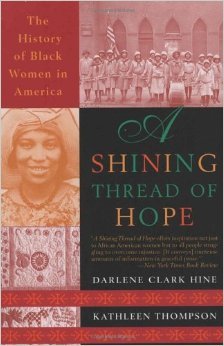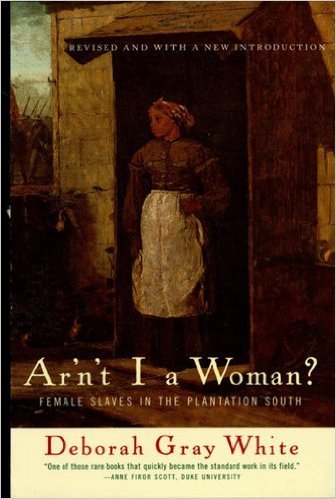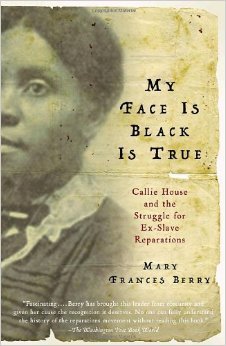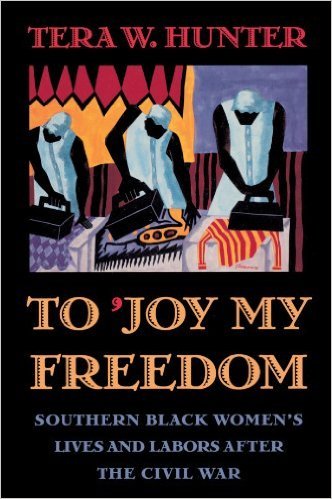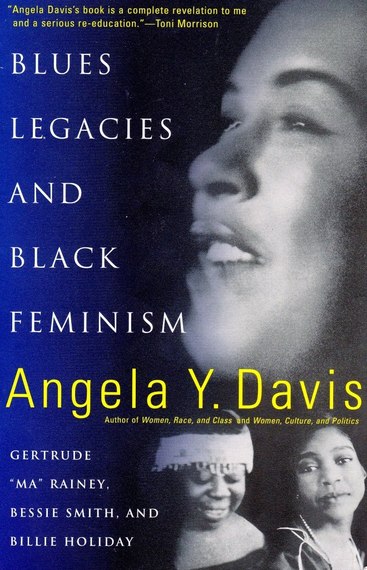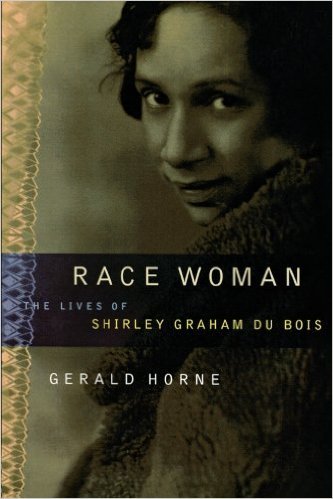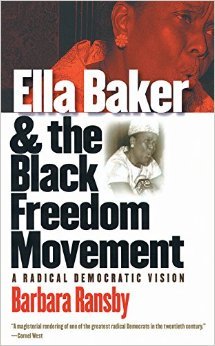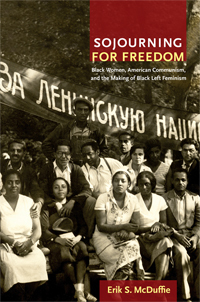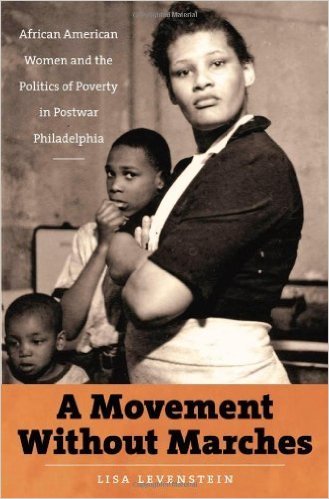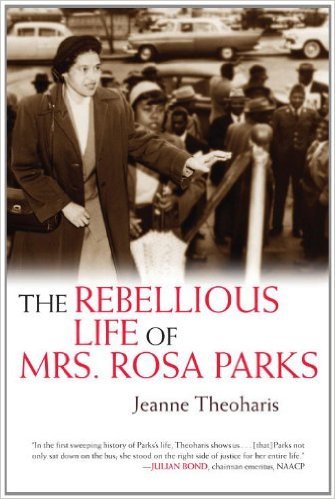It's Women's History Month, a time when we celebrate the historical and contemporary contributions of women in the United States and other parts of the globe. Its origins can be traced to the early twentieth century when Germany, Denmark and other socialist countries began to observe International Working Women's Day on March 8, 1911. Western nations failed to recognize the holiday until the 1960s, when feminists began to revive it under the name "International Women's Day." In the United States, several feminists led a movement to declare March women's history month. The movement gained public support and after being petitioned by the National Women's History Project, Congress designated the month of March 1987 as "Women's History Month."
In honor of Women's History Month, here is a list of ten recommended history books on black women in the United States. Collectively, these books shed light on how black women, working in different social and economic contexts, confronted racial and sexual discrimination, asserted their political agency, and affirmed their citizenship through a wide range of protest strategies. Focusing on different regions and employing a variety of research methodologies, these books offer varied perspectives on the historical contributions of black women and in so doing, capture the range and complexity of black women's ideas and activism from the era of slavery to the post-Civil Rights era. This list is not meant to be exhaustive but represents some of the most seminal works in the field of black women's history.
Darlene Clark Hine & Kathleen Thompson, eds., A Shining Thread of Hope: The History of Black Women in America
"A Shining Thread of Hope chronicles the lives of black women from indentured servitude in the early American colonies to the cruelty of antebellum plantations, from the reign of lynch law in the Jim Crow South to the triumphs of the Civil Rights era. Tracing the accomplishments, as well as the suffering, of black women through the Great Migration, the Harlem Renaissance, the Depression, the Civil Rights movement, and the present day, Hine and Thompson challenge preconceived notions and move black women from the fringes of American history to a central position in our understanding of the forces and events that have shaped this country."
Deborah Gray White, Ar'n't I a Woman?: Female Slaves in the Plantation South
"Living with the dual burdens of racism and sexism, enslaved women in the plantation South assumed roles within the family and community that contrasted sharply with traditional female roles in the larger American society. Ar'n't I a Woman? reviews and updates the scholarship on enslaved women and the slave family, exploring new ways of understanding the intersection of race and gender and comparing the myths that stereotyped female slaves with the realities of their lives. Above all, this groundbreaking study shows us how black women experienced freedom in the Reconstruction South -- their heroic struggle to gain their rights, hold their families together, resist economic and sexual oppression, and maintain their sense of womanhood against all odds."
Mary Frances Berry, My Face is Black is True: Callie House and the Struggle for Ex-Slave Reparations
"In this groundbreaking book, acclaimed historian Dr. Mary Frances Berry resurrects the remarkable story of ex-slave Callie House (1861-1928) who, seventy years before the civil-rights movement, headed a demand for ex-slave reparations. A widowed Nashville washerwoman and mother of five, House went on to fight for African American pensions based on those offered to Union soldiers, brilliantly targeting $68 million in taxes on seized rebel cotton and demanding it as repayment for centuries of unpaid labor. Here is the fascinating story of a forgotten civil rights crusader: a woman who emerges as a courageous pioneering activist, a forerunner of Malcolm X and Martin Luther King, Jr."
Tera W. Hunter, To Joy My Freedom: Southern Black Women's Lives and Labors after the Civil War
"As the Civil War drew to a close, newly emancipated black women workers made their way to Atlanta--the economic hub of the newly emerging urban and industrial south--in order to build an independent and free life on the rubble of their enslaved past. In an original and dramatic work of scholarship, Tera Hunter traces their lives in the postbellum era and reveals the centrality of their labors to the African-American struggle for freedom and justice...Hunter weaves a rich and diverse tapestry of the culture and experience of black women workers in the post-Civil War south. Through anecdote and data, analysis and interpretation, she manages to penetrate African-American life and labor and to reveal the centrality of women at the inception--and at the heart--of the new south."
Angela Davis, Blues Legacies and Black Feminism: Gertrude "Ma" Rainey, Bessie Smith, and Billie Holiday
"The female blues singers of the 1920s, Gertrude "Ma" Rainey, and Bessie Smith, not only invented a musical genre, but they also became models of how African American women could become economically independent in a culture that had not previously allowed it. Both Smith and Rainey composed, arranged, and managed their own road bands. Angela Y. Davis's study emphasizes the impact that these singers, and later Billie Holiday, had on the poor and working-class communities from which they came. The artists addressed radical subjects such as physical and economic abuse, race relations, and female sexual power, including lesbianism. Blues Legacies and Black Feminism places the fluid sexuality of these women within a larger context of African American artists' attempts to subvert and recreate America"
Gerald Horne, Race Woman: The Lives of Shirley Graham Du Bois
"One of the most intriguing activists and artists of the twentieth century, Shirley Graham Du Bois also remains one of the least studied and understood. In Race Woman, Gerald Horne draws a revealing portrait of this controversial figure who championed the civil rights movement in America, the liberation struggles in Africa and the socialist struggles in Maoist China. Through careful analysis and use of personal correspondence, interviews, and previously unexamined documents, Horne explores her work as a Harlem Renaissance playwright, biographer, composer, teacher, novelist, Left political activist, advisor and inspiration, who was a powerful historical actor."
Barbara Ransby, Ella Baker and the Black Freedom Movement: A Radical Democratic Vision
"One of the most important African American leaders of the twentieth century and perhaps the most influential woman in the civil rights movement, Ella Baker (1903-1986) was an activist whose remarkable career spanned fifty years and touched thousands of lives. A gifted grassroots organizer, Baker shunned the spotlight in favor of vital behind-the-scenes work that helped power the black freedom struggle. In this deeply researched biography, Barbara Ransby chronicles Baker's long and rich political career as an organizer, an intellectual, and a teacher, from her early experiences in depression-era Harlem to the civil rights movement of the 1950s and 1960s. "
Erik S. McDuffie, Sojourning for Freedom: Black Women, American Communism and the Making of Black Left Feminism
"Sojourning for Freedom portrays pioneering black women activists from the early twentieth century through the 1970s, focusing on their participation in the U.S. Communist Party (CPUSA) between 1919 and 1956. Erik S. McDuffie considers how women from diverse locales and backgrounds became radicalized, joined the CPUSA, and advocated a pathbreaking politics committed to black liberation, women's rights, decolonization, economic justice, peace, and international solidarity. Drawing on more than forty oral histories collected from veteran black women radicals and their family members, McDuffie examines how these women negotiated race, gender, class, sexuality, and politics within the CPUSA."
Lisa Levenstein, A Movement Without Marches: African American Women and the Politics of Poverty in Postwar Philadelphia
"A Movement Without Marches follows poor black women as they traveled from some of Philadelphia's most impoverished neighborhoods into its welfare offices, courtrooms, public housing, schools, and hospitals, laying claim to an unprecedented array of government benefits and services. With these resources came new constraints, as public officials frequently responded to women's efforts by limiting benefits and attempting to control their personal lives. Scathing public narratives about women's 'dependency' and their children's 'illegitimacy' placed African American women and public institutions at the center of the growing opposition to black migration and civil rights in northern U.S. cities. Countering stereotypes that have long plagued public debate, Levenstein offers a new paradigm for understanding postwar U.S. history."
Jeanne Theoharis, The Rebellious Life of Mrs. Rosa Parks
"The definitive political biography of Rosa Parks examines her six decades of activism, challenging perceptions of her as an accidental actor in the civil rights movement. Presenting a powerful corrective to the popular iconography of Rosa Parks as the quiet seamstress who with a single act birthed the modern civil rights movement, Theoharis excavates Parks's political philosophy and six decades of political work to reveal a woman whose existence demonstrated-in her own words-a 'life history of being rebellious.' From her family's support of Marcus Garvey to her service with the NAACP in Alabama in the 1940s and 1950s, and from her courageous bus arrest and steadfast efforts on behalf of the Montgomery bus boycott to her work in Detroit challenging Northern racial inequality on behalf of a newly elected Congressman John Conyers and alongside Black Power advocates, Parks's contributions to the civil rights movement go far beyond a single day."

